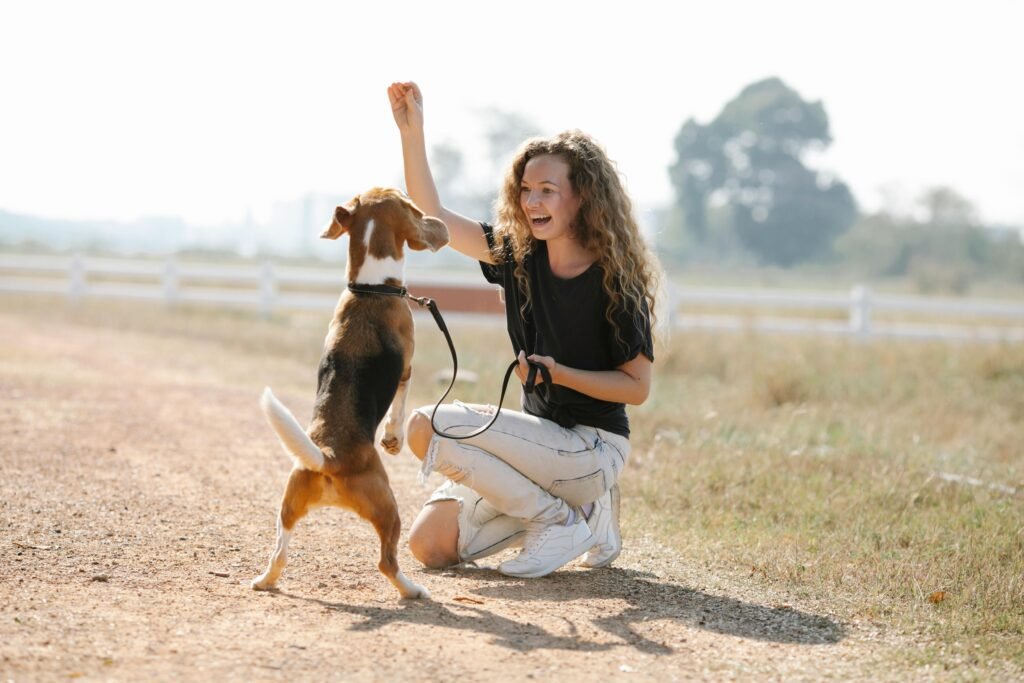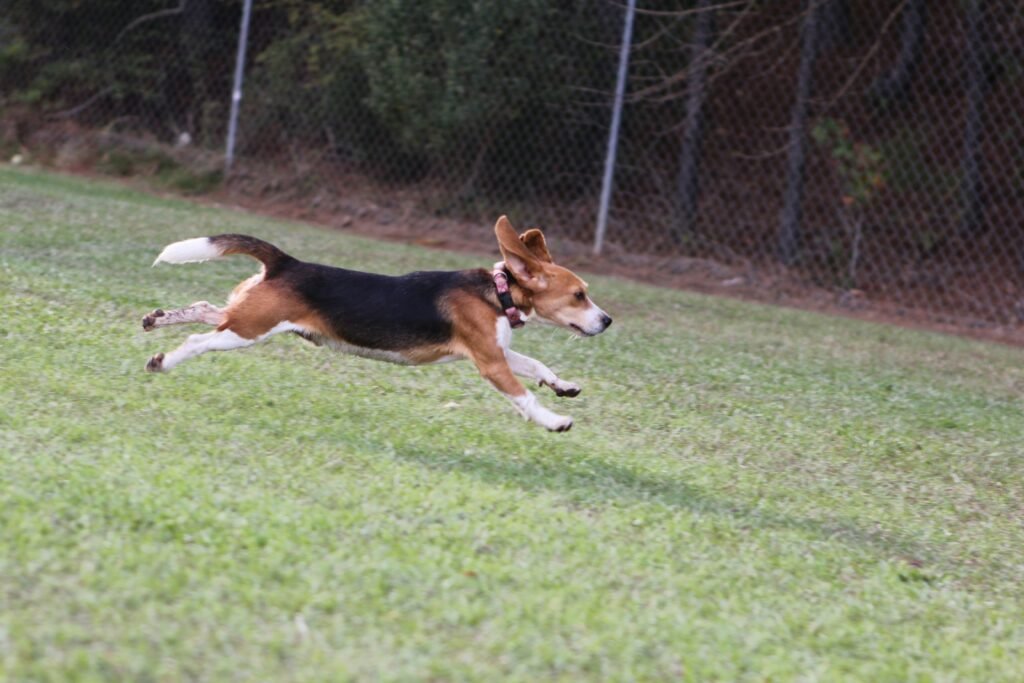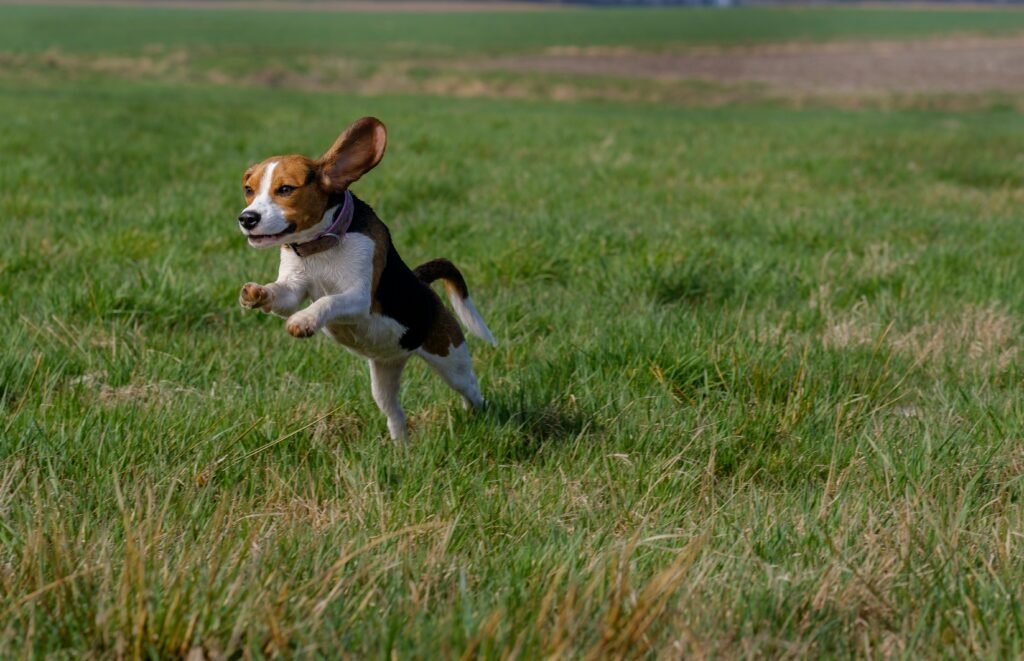Why Beagles Are the Worst Dogs?
Beagles, with their cute floppy ears and soulful eyes, may seem like the perfect addition to any family.
However, behind their adorable appearance lies a breed that often finds itself on the receiving end of criticism and frustration.
In this article, we’ll delve into why beagles are often considered the worst dogs by some, exploring their characteristics, challenges of ownership, misconceptions, and why despite it all, they still make wonderful pets.
Reasons Why Beagles Are Perceived as the Worst Dogs
Here are the reasons “Why Beagles are the Worst Dogs?”:
1. Excessive Barking
One of the most common complaints about beagles is their tendency to bark. Beagles have a deep, melodious bark that they often use to communicate or express excitement.
However, without proper training and socialization, this can become excessive and bothersome to neighbors.
2. High Energy Levels
Beagles are a high-energy breed that requires regular exercise and mental stimulation to prevent boredom and destructive behavior.

Failure to provide adequate outlets for their energy can result in behavioral issues such as chewing, digging, and excessive barking.
3. Stubbornness and Independence
Beagles are known for their stubborn and independent nature, which can make training a challenge. They have a strong prey drive and a single-minded focus when they catch an interesting scent, often ignoring commands or distractions in favor of following their nose.
4. Prone to Health Issues
Like many purebred dogs, beagles are susceptible to certain health problems, including hip dysplasia, epilepsy, and obesity.
Responsible breeders perform health screenings to minimize the risk of genetic disorders, but owners need to be aware of potential health issues and provide appropriate veterinary care.
5. Tendency to Follow Their Nose
Beagles are scent hounds bred for tracking games, and their keen sense of smell often leads them to follow interesting scents without regard for their surroundings.
This can be problematic when off-leash or in unfamiliar environments, as they may become easily distracted and wander off.
Characteristics of Beagles
Beagles possess a unique set of characteristics that define their breed and make them distinct from other dog breeds.
These traits contribute to their charm and appeal but also come with their own set of challenges for owners.
Size and Appearance
Beagles are small to medium-sized dogs with sturdy builds. They typically weigh between 20 to 30 pounds and stand around 13 to 15 inches tall at the shoulder.

Their most distinctive features include their large, expressive eyes, long, droopy ears, and a tail that often carries a white tip.
Temperament
Beagles are known for their friendly and outgoing temperament. They are sociable dogs that enjoy the company of both humans and other animals.
Beagles are often described as merry and curious, with a playful nature that endears them to many people.
However, they can also be stubborn and independent, which can present challenges in training.
Energy Levels
One of the defining characteristics of Beagles is their high energy levels. These dogs are always ready for adventure and require regular exercise to keep them mentally and physically stimulated.
Without adequate outlets for their energy, Beagles may become bored and engage in destructive behaviors such as chewing or digging.
Intelligence
Beagles are intelligent dogs with a keen sense of smell and a natural inclination for tracking scents.
This intelligence, coupled with their curious nature, can make them excellent problem solvers and explorers.
However, their intelligence also means they can be mischievous and may require creative approaches to training and mental stimulation.
Adaptability
Beagles are adaptable dogs that can thrive in a variety of environments, from urban apartments to rural farms.
They are equally at home lounging on the couch or exploring the great outdoors.
However, their adaptability should not be mistaken for low maintenance, as Beagles still require consistent training, exercise, and socialization to be happy and well-adjusted companions.
Understanding these characteristics is essential for prospective Beagle owners to ensure they are prepared for the joys and challenges of welcoming a Beagle into their home.
Challenges of Owning a Beagle
Owning a Beagle comes with its own set of challenges, despite their adorable appearance and friendly demeanor.
While Beagles make wonderful companions for the right owners, it’s essential to be aware of the potential difficulties involved in caring for this breed.
Training Difficulties
Due to their stubborn nature and strong hunting instincts, beagles can be challenging to train, particularly when it comes to obedience and recall.

Consistent, positive reinforcement-based training methods are essential for success with this breed.
Exercise Requirements
Beagles have high exercise needs and thrive in homes with ample space for outdoor play and exploration.
Daily walks, off-leash runs in a secure area, and interactive play sessions are essential for keeping them mentally and physically stimulated.
Potential for Destructive Behavior
When left alone for extended periods or not provided with sufficient mental and physical stimulation, beagles may resort to destructive behaviors such as chewing furniture, digging holes, or excessive barking. Crate training and providing interactive toys can help prevent boredom-related behaviors.
Care Needs
Beagles require regular grooming, including brushing to remove loose hair and occasional baths to keep their coat clean and healthy.
They also need regular veterinary check-ups, vaccinations, and parasite prevention to maintain their overall health and well-being.
High Energy
Beagles are incredibly energetic dogs that require ample exercise to stay happy and healthy.
Their boundless energy can be overwhelming for owners who are not prepared to provide them with regular physical activity.

Without sufficient exercise, Beagles may become restless and resort to destructive behaviors such as chewing furniture or digging up the yard.
Stubbornness
One of the most notable characteristics of Beagles is their stubborn nature.
These dogs have a strong independent streak and may resist obedience training, especially if they sense inconsistency or lack of authority from their owners.
Patience and persistence are essential when training a Beagle, as they may require additional time and effort to learn commands and behaviors.
Vocalization
Beagles are known for their distinctive baying, a loud and melodious howl that can carry for long distances.
While this trait may be charming to some, it can be a source of annoyance for neighbors, particularly in urban areas with noise restrictions.
Beagle owners must be prepared to address excessive barking through training and management techniques to maintain harmonious relationships with neighbors and ensure a peaceful living environment.
Understanding and addressing these challenges is crucial for prospective Beagle owners to ensure they can provide a suitable environment for their pets.
Beagle Annoyance
Barking
Beagle’s barking can be a significant source of annoyance for owners and neighbors alike.
These dogs tend to vocalize their thoughts, whether it’s to alert their owners of something suspicious or simply out of boredom.
While their baying can be charming at times, it can quickly become excessive and disruptive, especially in urban settings or shared living spaces.
Training techniques such as positive reinforcement and providing adequate mental stimulation can help curb excessive barking behavior in Beagles.
Prey Drive
Beagles are bred as scent hounds, with a strong instinct to follow their noses wherever they may lead.
This innate prey drive can become a source of annoyance for owners, particularly during walks or outdoor activities.
Beagles may become easily distracted by interesting scents, leading them to pull on the leash or ignore commands.
Additionally, their prey drive can pose a risk to smaller animals, as they may give chase without warning.
Owners need to provide proper training and supervision to manage their Beagle’s prey drive and prevent potential accidents or conflicts.
Hunting Instincts
Originally bred as scent hounds, Beagles have a strong hunting instinct that drives them to follow their noses wherever they may lead.
This can make off-leash walks a risky proposition, as they may become easily distracted by interesting scents.
Digging
Digging is a natural behavior for Beagles, rooted in their hunting instincts and ancestry as scent hounds.
While digging may seem harmless or even entertaining at first, it can quickly become a source of frustration for Beagle owners if left unchecked.
Instinctual Behavior
Beagles are hardwired to dig, as it serve several purposes in their natural hunting behavior.
In the wild, Beagles would dig to uncover prey hiding underground or to access scent trails.
Even in domestic settings, Beagles may dig out of instinctual curiosity or boredom, especially if they are left alone for extended periods without stimulation.
Boredom and Excess Energy
Digging can also be a sign of boredom or excess energy in Beagles. These energetic dogs require plenty of physical and mental stimulation to prevent boredom-related behaviors, such as digging.

Without adequate outlets for their energy, Beagles may resort to digging as a way to alleviate their pent-up energy or frustration.
Environmental Factors
Certain environmental factors may exacerbate digging behavior in Beagles. For example, hot weather can drive Beagles to dig in search of cooler ground to lie on.
Similarly, anxiety or stress, such as from loud noises or changes in routine, may prompt Beagles to dig as a coping mechanism.
Scent Drive
Beagles have an exceptional sense of smell, which can lead them to become easily distracted by interesting scents during walks.
This can make recall training particularly challenging, as they may be more focused on following a scent trail than listening to their owner’s commands.
Beagle Health Issue Problems
While Beagles are generally healthy dogs with a lifespan of around 12 to 15 years, like all breeds, they are prone to certain health issues that owners should be aware of and vigilant about.
Obesity
Beagles have a hearty appetite and a tendency to overeat if given the chance, which puts them at risk for obesity.
Obesity can lead to a range of health problems, including joint issues, diabetes, and heart disease.
To prevent obesity, owners should monitor their Beagle’s diet, provide appropriate portion sizes, and ensure they get regular exercise to burn off excess calories.
Ear Infections
Beagles have long, floppy ears that can trap moisture and debris, creating the perfect environment for bacteria and yeast to flourish.
This makes them particularly susceptible to ear infections, which can cause discomfort and pain if left untreated.
Owners should regularly inspect and clean their Beagle’s ears to prevent infections, and seek veterinary attention if they notice signs of irritation or discharge.
Hypothyroidism
Hypothyroidism is a common endocrine disorder in Beagles, characterized by an underactive thyroid gland that produces insufficient thyroid hormone.
This can lead to a range of symptoms, including weight gain, lethargy, hair loss, and skin problems.
Hypothyroidism is typically managed with lifelong medication to replace the missing thyroid hormone and control symptoms.
Epilepsy
Beagles are one of the breeds predisposed to epilepsy, a neurological disorder characterized by recurrent seizures.
Epileptic seizures can vary in severity and frequency and may require lifelong management with antiepileptic medications to control.
While epilepsy cannot be cured, with proper treatment and management, many Beagles with the condition can lead happy and relatively normal lives.
Beagles and Family Life
Compatibility with Children
While Beagles are generally friendly and affectionate with children, their high energy levels and propensity for rough play may not make them the best choice for households with young children.
Supervision and proper training are essential to ensure positive interactions between Beagles and children.
Interaction with Other Pets
Beagles are typically sociable dogs that get along well with other pets, including cats and dogs.
However, their strong prey drive may pose a risk to smaller animals, so caution should be exercised when introducing Beagles to new furry companions.
Misconceptions about Beagles
Not Suitable for Apartments
While beagles are active and energetic dogs, they can adapt to apartment living with proper exercise and mental stimulation.
However, apartment-dwelling beagles need to have access to outdoor spaces for regular exercise and potty breaks.
Difficulties with Obedience Training
While beagles may be more independent-minded than some other breeds, they are intelligent dogs capable of learning and responding to training.
Consistency, patience, and positive reinforcement techniques are key to success when training a beagle.
Not Ideal for Families with Small Children
Contrary to popular belief, beagles can make excellent family pets, especially in homes with older children who understand how to interact with dogs respectfully. With proper socialization and supervision, beagles can form strong bonds with children and become cherished family members.
Why Beagles Still Make Great Pets

Despite their perceived shortcomings, beagles possess many wonderful qualities that endear them to their owners.
- Loyal Companionship: Beagles are incredibly loyal and devoted to their families, often forming strong bonds with their owners.
- Playful Nature: Beagles have a playful and mischievous personality that can bring joy and laughter to any household.
- Affectionate Towards Their Owners: Beagles thrive on attention and affection from their human companions, making them loving and affectionate pets.
Tips for Beagle Owners
- Consistent Training Methods: Use positive reinforcement techniques and consistency when training your beagle.
- Regular Exercise Routines: Provide daily exercise and mental stimulation to keep your beagle happy and healthy.
- Mental Stimulation Activities: Engage your beagle’s mind with interactive toys, puzzle feeders, and scent games.
- Health Care Management: Schedule regular veterinary check-ups and maintain a healthy diet and exercise regimen to prevent health problems.
FAQs: Beagles
Are Beagles good apartment dogs?
Beagles may not thrive in apartment settings due to their energetic nature, tendency to bark, and hunting instincts.
What is the typical lifespan of Beagles?
On average, Beagles live between 12 to 15 years, although individual lifespans can vary based on factors like genetics and care.
Do Beagles get along with other pets?
Beagles are generally sociable dogs that get along well with other pets, but their strong prey drive may pose a risk to smaller animals.
Are Beagles hypoallergenic?
No, Beagles are not hypoallergenic. They shed dander and have a dense coat that can trigger allergies in sensitive individuals.
What is the ideal weight range for Beagles?
Adult Beagles typically weigh between 20 to 30 pounds, with variations based on factors like age and genetics.
Are Beagles compatible with cats?
Beagles can usually get along with cats with proper introductions and supervision, but it’s essential to monitor their interactions.
How much exercise do Beagles need?
Beagles are highly energetic dogs that require at least an hour of exercise each day to prevent boredom and destructive behaviors.
Are Beagles easy to train?
Beagles can be stubborn and independent, making training a challenge for some owners. Consistency, patience, and positive reinforcement techniques are key to successful training.
Do Beagles shed a lot?
Yes, Beagles shed moderately throughout the year as part of their natural hair growth cycle.
Conclusion
While Beagles undoubtedly have their charms, they also come with a host of challenges that may make them unsuitable for some owners.
From their high energy levels and stubborn nature to their propensity for vocalization and health concerns.
Beagles require dedicated owners who are willing to put in the time and effort to properly train and care for them.





